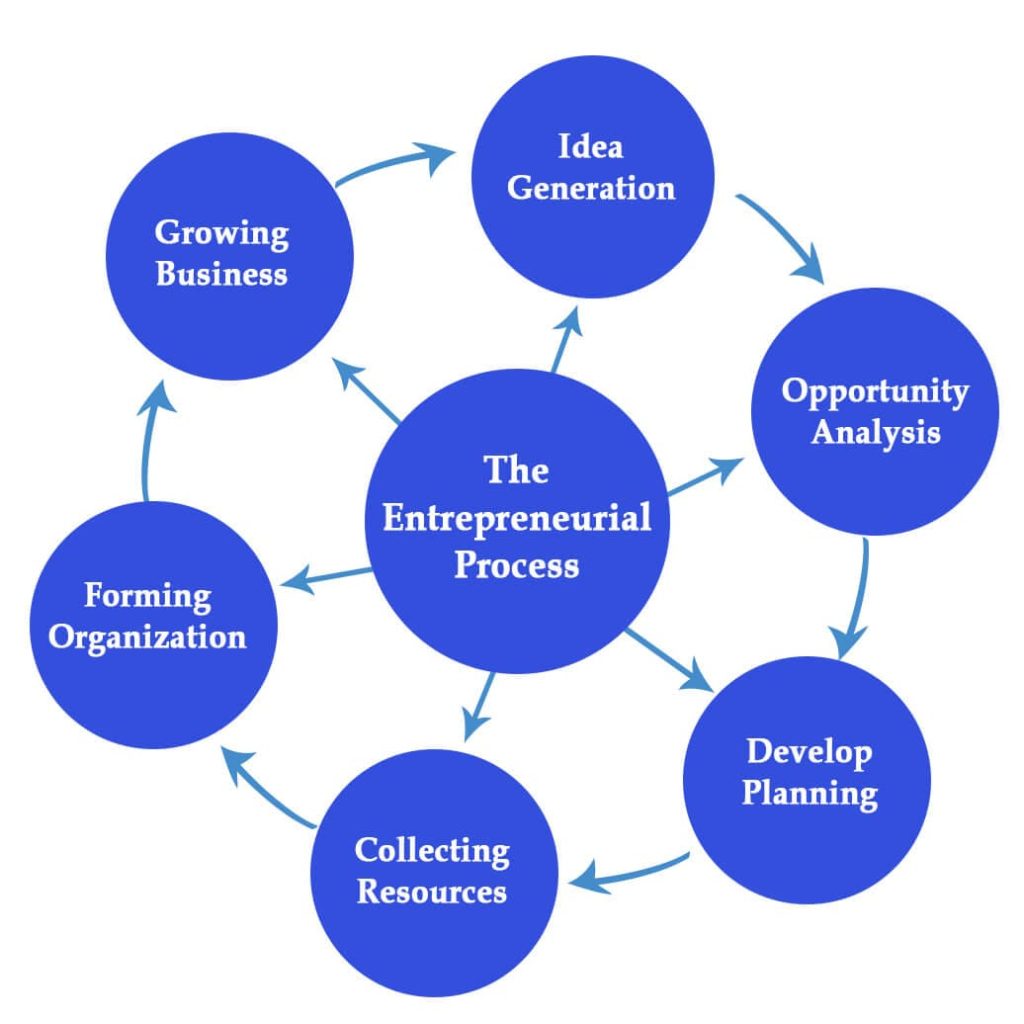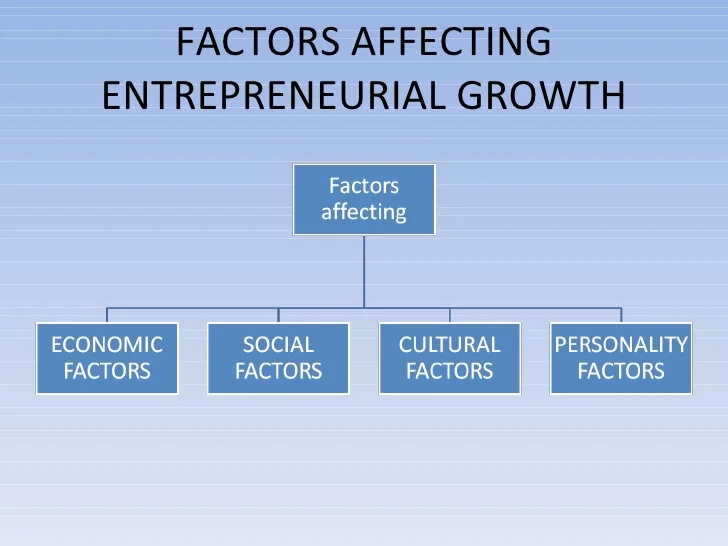Entrepreneurship is a driving force behind economic development and innovation worldwide. It plays a crucial role in creating jobs, fostering economic growth, and addressing societal challenges. Numerous factors influence entrepreneurship growth, but not all factors have a direct impact. In this article, we will explore the various factors that drive entrepreneurship growth and identify the one factor that does not significantly influence it.
Table of contents
Importance of Entrepreneurship Growth

Before delving into the factors that influence entrepreneurship growth, let’s understand why it is essential. Entrepreneurship contributes to job creation, wealth generation, and the development of innovative solutions. It fosters competition and promotes economic dynamism in a globalized world. However, not all factors contribute equally to this growth.
Economic Factors Influencing Entrepreneurship Growth

Access to Capital
Access to capital is crucial for entrepreneurs to start and expand their businesses. Adequate funding allows entrepreneurs to invest in resources, research, and development. However, while access to capital is essential, it is not the sole determinant of entrepreneurship growth. Entrepreneurial skills, market knowledge, and innovation also play vital roles.
Market Demand
A thriving market with sufficient demand for goods and services is essential for entrepreneurial success. Entrepreneurs need to identify market gaps and meet consumer needs. Yet, market demand alone is not enough. Entrepreneurs must also have the skills and resources to capitalize on these opportunities.
Economic Policy
Favorable economic policies, such as tax incentives and regulatory support, can create a conducive environment for entrepreneurship. However, while such policies are advantageous, they are not the sole drivers of entrepreneurship growth. Other factors, including technological advancements and socio-cultural aspects, also come into play.
Socio-Cultural Factors Influencing Entrepreneurship Growth
Education and Skill Levels
A well-educated and skilled workforce can significantly contribute to entrepreneurship growth. However, education and skills alone are insufficient without an entrepreneurial mindset and a supportive ecosystem. Entrepreneurship requires more than just qualifications; it demands initiative and innovation.
Social Norms and Attitudes
Societal norms and attitudes towards risk-taking and failure can influence the prevalence of entrepreneurship. In cultures that embrace risk and failure as part of the learning process, entrepreneurship tends to thrive. Nevertheless, other factors like access to resources and market conditions are equally critical.
Cultural Diversity
Cultural diversity can lead to a range of perspectives and ideas, fostering entrepreneurial innovation. However, diverse cultures must also have access to resources and opportunities to realize their entrepreneurial potential. Therefore, diversity is a factor but not the sole influencer of entrepreneurship growth.
Technological Factors Influencing Entrepreneurship Growth

Innovation and Technology Adoption
Innovation is a significant driver of entrepreneurship, especially in today’s technology-driven world. Entrepreneurs who adopt new technologies and create innovative solutions often experience substantial growth. Nonetheless, they also require market access and resources to succeed.
Access to Information
The availability of information and technology infrastructure can enhance entrepreneurial endeavors. Entrepreneurs require access to market data, consumer insights, and industry trends. However, information alone cannot ensure growth without the ability to apply it effectively.
Infrastructure
A well-developed infrastructure, including transportation, communication, and utilities, is essential for entrepreneurial success. Yet, it is not the only determinant. Entrepreneurial skills and a supportive environment are equally crucial.
Environmental Factors Influencing Entrepreneurship Growth

In the modern era, sustainability and environmental responsibility are important factors. Entrepreneurs who focus on eco-friendly solutions can have a positive impact.
| Factor | Explanation |
| Sustainability & Green Initiatives | |
| 1. Market Demand | Entrepreneurs focusing on eco-friendly solutions can thrive when there is a growing demand for sustainable products and services. The alignment of their offerings with market trends is crucial for success. |
| 2. Cost Savings | Adopting sustainable practices can lead to cost savings in the long run, reducing operational expenses and increasing profit margins for green-focused entrepreneurs. |
| 3. Brand Reputation | Building an eco-friendly brand image can attract environmentally conscious consumers and investors, boosting the entrepreneur’s reputation and market position. |
| 4. Access to Funding | Many investors and funding organizations are more inclined to support businesses with a strong commitment to sustainability, offering financial incentives and support to eco-entrepreneurs. |
| 5. Government Initiatives | Government policies, incentives, and grants that promote sustainable entrepreneurship, such as tax benefits or research funding, can significantly facilitate the growth of green startups. |
Conclusion
In conclusion, entrepreneurship growth is influenced by a multitude of factors. While each of the factors mentioned above plays a role, none of them exclusively determine the extent of entrepreneurship growth. It is the interplay of these factors that creates a dynamic environment for entrepreneurs to thrive and innovate.
RelatedBlogs:
Entrepreneurship as a Career Option
Entrepreneurship Development Cycle
What is Entrepreneurship Mindset Curriculum?
What is Corporate Entrepreneurship
FAQs
While there are numerous factors that influence entrepreneurship growth, it is difficult to pinpoint a single most critical factor.
No, access to capital is crucial, but it is not the sole determinant of entrepreneurial success. Skills, market understanding, and innovation are equally important.
Regulatory compliance is important for entrepreneurship, as it ensures a level playing field and consumer protection.

